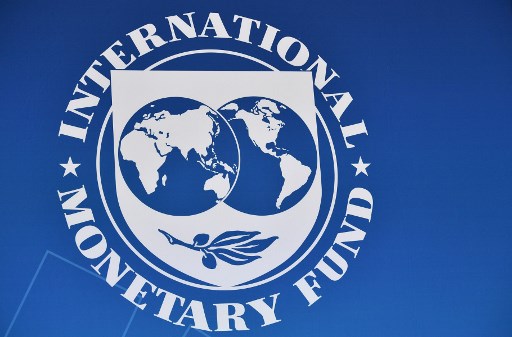
403
Sorry!!
Error! We're sorry, but the page you were looking for doesn't exist.
Former IMF representative claims US seizure of Russian assets possibly to quicken de-dollarization
(MENAFN) A former International Monetary Fund (IMF) official has sounded the alarm on the potential repercussions of the United States' move to seize frozen Russian assets, suggesting that it could accelerate a global shift away from the United States dollar, as reported by Bloomberg. The recent signing of a bill by US President Joe Biden authorizing the seizure of Russian state assets held in America has raised concerns among international financial experts.
The legislation, known as the REPO Act, empowers the United States administration to confiscate Russian assets held in American banks and redirect them to a Ukraine reconstruction fund. This aggressive approach by Washington, aimed at bolstering Ukraine's efforts in its conflict with Moscow, has sparked debates over the legality and broader implications of asset seizures.
According to reports, the United States and its allies have already frozen approximately USD300 billion in Russian central bank assets, with a significant portion held in US banks as part of sanctions related to the conflict in Ukraine. Former IMF official Eswar Prasad has cautioned that the intensified weaponization of the United States dollar through asset seizures could prompt United States rivals to reconsider their reliance on the greenback, potentially accelerating the process of de-dollarization on a global scale.
While the United States Treasury Secretary, Janet Yellen, has emphasized the necessity of unlocking the value of immobilized Russian assets to support international efforts, concerns persist among G7 finance chiefs and European Union officials regarding the legal precedent and diplomatic ramifications of such actions.
The move by the United States to seize Russian assets marks a significant escalation in tensions between the two nations, with Moscow issuing diplomatic warnings to Washington in response. As the international community grapples with the implications of these developments, the specter of de-dollarization looms large, posing challenges and uncertainties for the future of global finance and economic stability.
The legislation, known as the REPO Act, empowers the United States administration to confiscate Russian assets held in American banks and redirect them to a Ukraine reconstruction fund. This aggressive approach by Washington, aimed at bolstering Ukraine's efforts in its conflict with Moscow, has sparked debates over the legality and broader implications of asset seizures.
According to reports, the United States and its allies have already frozen approximately USD300 billion in Russian central bank assets, with a significant portion held in US banks as part of sanctions related to the conflict in Ukraine. Former IMF official Eswar Prasad has cautioned that the intensified weaponization of the United States dollar through asset seizures could prompt United States rivals to reconsider their reliance on the greenback, potentially accelerating the process of de-dollarization on a global scale.
While the United States Treasury Secretary, Janet Yellen, has emphasized the necessity of unlocking the value of immobilized Russian assets to support international efforts, concerns persist among G7 finance chiefs and European Union officials regarding the legal precedent and diplomatic ramifications of such actions.
The move by the United States to seize Russian assets marks a significant escalation in tensions between the two nations, with Moscow issuing diplomatic warnings to Washington in response. As the international community grapples with the implications of these developments, the specter of de-dollarization looms large, posing challenges and uncertainties for the future of global finance and economic stability.

Legal Disclaimer:
MENAFN provides the
information “as is” without warranty of any kind. We do not accept
any responsibility or liability for the accuracy, content, images,
videos, licenses, completeness, legality, or reliability of the information
contained in this article. If you have any complaints or copyright
issues related to this article, kindly contact the provider above.


















Comments
No comment